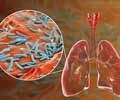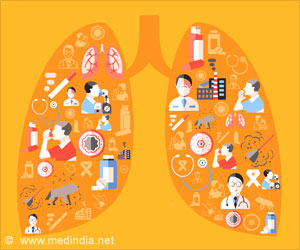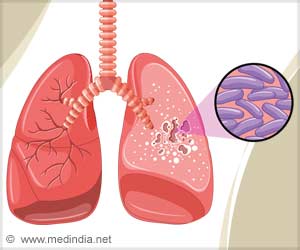
Undernourished Household Contacts Are at Increased Risk of Tuberculosis (TB) Disease, but not TB Infection- a Multicenter Prospective Cohort Analysis
Go to source).
Understanding TB Dormancy, Immune Control, and Undernutrition
Mycobacterium tuberculosis, the bacterium responsible for tuberculosis (TB), has a unique ability to lay dormant within individuals for extended periods before becoming active and causing severe illness. The immune system plays a crucial role in controlling the bacteria and maintaining dormancy. Decades of epidemiological research have connected undernutrition to TB, suggesting that undernourished individuals, often experiencing a weakened immune system referred to as nutritionally acquired immune deficiency (N-AIDS), are at a heightened risk of TB disease. However, the precise reasons behind this increased susceptibility remain unclear.‘Undernourished household members face a heightened risk of developing #TB following exposure. #tuberculosis’
Tweet it Now
“Are they more likely to become infected with the TB germ? Or are their immune systems unable to contain the germ resulting in severe disease? This fundamental question is important to answer as it can guide how we can best protect undernourished individuals who form a key and vulnerable population in the fight against TB,” explained corresponding author Pranay Sinha, MD, assistant professor of medicine at Boston University Chobanian & Avedisian School of Medicine. The researchers, which included investigators from both U.S. and Indian institutions (which are part of the Regional Prospective Observational Research for Tuberculosis (RePORT) India consortium), identified nearly 900 household contacts of persons who were newly diagnosed with TB, screening them to make sure they did not have TB disease at enrollment.
They then followed these contacts to see if they developed TB disease for up to four years. Those who had a negative TB infection test at enrollment were retested to see if it had turned positive. The researchers then compared the rate of TB disease and TB infection between undernourished household contacts and well-nourished household contacts.
According to the researchers, these findings have clinical implications. “It is not by increasing infection, instead, it is by failing to contain the infection when it happens. Fortunately, undernutrition is a modifiable risk factor. Our findings should prompt TB programs to promptly provide adequate rations for the entire household to prevent TB disease among household contacts in addition to TB preventive therapy,” adds Sinha.
Reference:
- Undernourished Household Contacts Are at Increased Risk of Tuberculosis (TB) Disease, but not TB Infection- a Multicenter Prospective Cohort Analysis - (https://academic.oup.com/cid/advance-article-abstract/doi/10.1093/cid/ciae149/7655686?redirectedFrom=fulltext)
Source-Eurekalert













